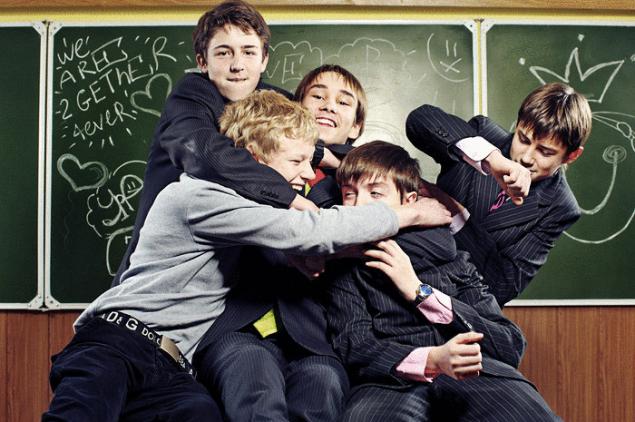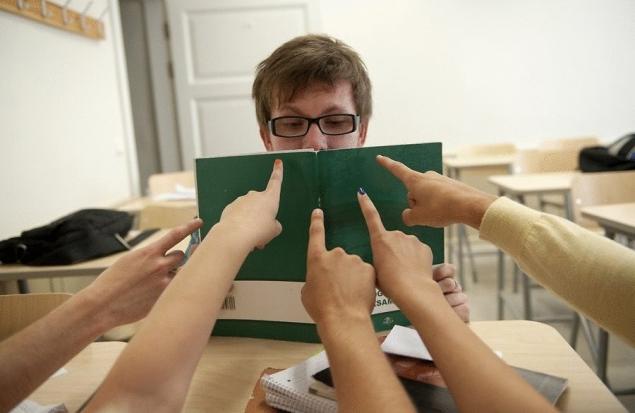436
School grievances do not remain without consequences
The cases when a child is constantly exposed to attacks from peers, well-known teachers and parents. British scientists have found that traces of these "childish pranks" can show up even 40 years later.
Bullying (from the English. bullying from the bully – bully, threaten, intimidate) – psychologists call the phenomenon when one of the team members, often school are subjected to bullying from others and are unable to defend themselves. Researchers from king's College in London have found out that victims of school bullying have problems with physical and mental health in adulthood. These findings are based on data from the British national study of children's development, which oversees the children born in England, Scotland and Wales during one week in 1958. This cohort study on the first phase involved more than 17 thousand children. Assessment of the health and development of children were aged 7, 11 and 16 years, and then continued to watch them as they grow older 23, 33, 42, 45 and 50 years.

The results of the study on bullying, published in the American Journal of Psychiatry. They are based on data from 7771 child. When these children were 7 and 11 years, their parents reported that the children are harassed in school. In the future, their health was monitored for up to 50 years. Dr. Ryu Takizawa from the Institute of psychiatry at king's College in London notes that the negative effects of bullying are visible after four decades and include effects on health as well as economic and social consequences.
Those who in childhood had been subjected to harassment, more likely 50 years have had problems with physical and mental health, ability to learn. They have increased the risk of depression, anxiety, suicidal thoughts. For victims of school bullying tend to have lower education levels and salaries, higher the risk of unemployment. Social relationships also suffer, survey participants more likely to talk about dissatisfaction with life. The negative effect of bullying persists even when accounting for other factors such as IQ, emotional and behavioral problems, social and economic status of the parents.
According to estimates now in the UK 28% of children are harassed in school from time to time and 15% often.

Professor Louis Arsenault from the Institute of psychiatry, king's College believes that we must abandon the idea that the attacks of peers is an inevitable part of maturing. Teachers, parents, and school curriculum developers must understand that what is happening in the school yard can have a lasting impact.
Source: nkj.ru
Bullying (from the English. bullying from the bully – bully, threaten, intimidate) – psychologists call the phenomenon when one of the team members, often school are subjected to bullying from others and are unable to defend themselves. Researchers from king's College in London have found out that victims of school bullying have problems with physical and mental health in adulthood. These findings are based on data from the British national study of children's development, which oversees the children born in England, Scotland and Wales during one week in 1958. This cohort study on the first phase involved more than 17 thousand children. Assessment of the health and development of children were aged 7, 11 and 16 years, and then continued to watch them as they grow older 23, 33, 42, 45 and 50 years.

The results of the study on bullying, published in the American Journal of Psychiatry. They are based on data from 7771 child. When these children were 7 and 11 years, their parents reported that the children are harassed in school. In the future, their health was monitored for up to 50 years. Dr. Ryu Takizawa from the Institute of psychiatry at king's College in London notes that the negative effects of bullying are visible after four decades and include effects on health as well as economic and social consequences.
Those who in childhood had been subjected to harassment, more likely 50 years have had problems with physical and mental health, ability to learn. They have increased the risk of depression, anxiety, suicidal thoughts. For victims of school bullying tend to have lower education levels and salaries, higher the risk of unemployment. Social relationships also suffer, survey participants more likely to talk about dissatisfaction with life. The negative effect of bullying persists even when accounting for other factors such as IQ, emotional and behavioral problems, social and economic status of the parents.
According to estimates now in the UK 28% of children are harassed in school from time to time and 15% often.

Professor Louis Arsenault from the Institute of psychiatry, king's College believes that we must abandon the idea that the attacks of peers is an inevitable part of maturing. Teachers, parents, and school curriculum developers must understand that what is happening in the school yard can have a lasting impact.
Source: nkj.ru
























